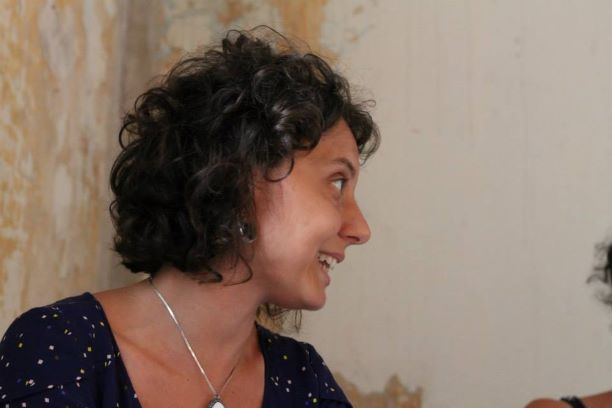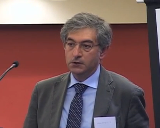Studying at the University of Verona
Here you can find information on the organisational aspects of the Programme, lecture timetables, learning activities and useful contact details for your time at the University, from enrolment to graduation.
Academic calendar
The academic calendar shows the deadlines and scheduled events that are relevant to students, teaching and technical-administrative staff of the University. Public holidays and University closures are also indicated. The academic year normally begins on 1 October each year and ends on 30 September of the following year.
Course calendar
The Academic Calendar sets out the degree programme lecture and exam timetables, as well as the relevant university closure dates..
| Period | From | To |
|---|---|---|
| LMSRPS - 2° ANNO 1° SEM. | Oct 3, 2019 | Feb 8, 2020 |
| LMSRPS - 1° ANNO 1° SEM. | Nov 14, 2019 | Mar 14, 2020 |
| LMSRPS - 2° ANNO 2° SEM. | Apr 16, 2020 | Jun 27, 2020 |
| LMSRPS - 1° ANNO 2° SEM. | Apr 16, 2020 | Jun 27, 2020 |
| Session | From | To |
|---|---|---|
| Sessione invernale Lm Srps | Mar 16, 2020 | Apr 9, 2020 |
| Sessione estiva Lm Srps | Jul 1, 2020 | Jul 31, 2020 |
| Sessione autunnale Lm Srps | Sep 1, 2020 | Sep 30, 2020 |
| Session | From | To |
|---|---|---|
| Prima sessione Lm Srps | Sep 15, 2020 | Dec 15, 2020 |
| Seconda sessione Lm Srps | Mar 1, 2021 | Apr 30, 2021 |
| Period | From | To |
|---|---|---|
| FESTIVITA' OGNISSANTI | Nov 1, 2019 | Nov 1, 2019 |
| FESTIVITA' IMMACOLATA CONCEZIONE | Dec 8, 2019 | Dec 8, 2019 |
| Vacanze di Natale | Dec 23, 2019 | Jan 6, 2020 |
| VACANZE DI PASQUA | Apr 10, 2020 | Apr 15, 2020 |
| FESTA DELLA LIBERAZIONE | Apr 25, 2020 | Apr 25, 2020 |
| FESTIVITA' DEL LAVORO | May 1, 2020 | May 1, 2020 |
| FESTIVITA' DEL SANTO PATRONO SAN ZENO | May 21, 2020 | May 21, 2020 |
| Festa della Repubblica | Jun 2, 2020 | Jun 2, 2020 |
| vacanze estive | Aug 10, 2020 | Aug 23, 2020 |
| Description | Period | From | To |
|---|---|---|---|
| Stage 2° anno Lm Srps | Stage 2° anno Lm Srps | Jun 15, 2020 | Sep 15, 2020 |
| Stage 1° anno Lm Srps | Stage 1° anno Lm Srps | Jul 1, 2020 | Sep 30, 2020 |
Exam calendar
Exam dates and rounds are managed by the relevant Medicine Teaching and Student Services Unit.
To view all the exam sessions available, please use the Exam dashboard on ESSE3.
If you forgot your login details or have problems logging in, please contact the relevant IT HelpDesk, or check the login details recovery web page.
Should you have any doubts or questions, please check the Enrollment FAQs
Academic staff
 davide.adamoli@univr.it
davide.adamoli@univr.it
 marialivia.alga@univr.it
marialivia.alga@univr.it
 simone.battista@univr.it
simone.battista@univr.it
 michele.bertani@univr.it
michele.bertani@univr.it
Cunico Laura
 laura.cunico@univr.it
laura.cunico@univr.it
 alessandro.manganotti@ospedaleuniverona.it
alessandro.manganotti@ospedaleuniverona.it
 loredana.pancheri@univr.it
loredana.pancheri@univr.it
 sara.rinaldi@univr.it
sara.rinaldi@univr.it
Study Plan
The Study Plan includes all modules, teaching and learning activities that each student will need to undertake during their time at the University.
Please select your Study Plan based on your enrollment year.
1° Year
| Modules | Credits | TAF | SSD |
|---|
2° Year activated in the A.Y. 2020/2021
| Modules | Credits | TAF | SSD |
|---|
| Modules | Credits | TAF | SSD |
|---|
| Modules | Credits | TAF | SSD |
|---|
Legend | Type of training activity (TTA)
TAF (Type of Educational Activity) All courses and activities are classified into different types of educational activities, indicated by a letter.
Clinical and organizational progress in rehabilitation context - METODOLOGIA DELLA RICERCA TRASLAZIONALE (2020/2021)
Teaching code
4S000420
Teacher
Credits
2
Language
Italian
Scientific Disciplinary Sector (SSD)
MED/48 - NURSING IN NEUROPSYCHIATRY AND REHABILITATION
Period
LMSRPS - 2° ANNO 2° SEM. dal Apr 15, 2021 al Jun 26, 2021.
To show the organization of the course that includes this module, follow this link: Course organization
Learning outcomes
Understand the meaning of translational research and acquire the necessary knowledge necessary for drafting research projects in the field of rehabilitation.
Program
- Understand the meaning of translational research and acquire the necessary knowledge for the drafting of research projects in the rehabilitation field.
- Identify the different resources available to promote the dissemination of Evidence Based Practice (EBP) in clinical practice.
- Recognize the different models available for the adoption of EBP.
- Recognize the components of a well-formulated clinical question and be able to frame this question
- Discern between experimental and non-experimental research.
- Discuss the historical context that led to the creation of different ethical codes.
- Understand that any conflicts between ethics and research needs can raise ethical dilemmas.
- Identify the three main ethical principles set out in the Belmont Report and their implications.
- Identify the procedures for adhering to ethical principles.
- Evaluate the ethical dimensions of a research report on the basis of sufficient information availability
- Describe the process of elaborating a research problem.
- Identify the usefulness and structure of the purpose and research questions for quantitative studies.
- Describe the function and characteristics of the research hypotheses and distinguish between different types of hypotheses (directional vs non-directional, research vs nothing).
- Discuss the main basis of decisions regarding the research design of a quantitative study.
- Identify and evaluate alternative methods for the control of confounding variables.
- Understand the various risks that can compromise the validity of quantitative studies.
- Critically evaluate a quantitative study in its research design and methods.
- Distinguish between probabilistic and non-probabilistic sampling and compare the respective advantages and disadvantages.
- Identify and describe the different types of sampling designs for quantitative studies.
- Evaluate the adequacy of the sampling method and sample size used in a study.
- Discuss the dimensions along which data collection methods vary.
- Describe the different methods of collecting self-report data (interviews / questionnaires, composite scales).
- Describe the different methods of collecting, sampling and recording observational data.
- Describe the main characteristics and advantages of biophysiological measures
- Describe the main characteristics of the measurement and identify the main sources of measurement errors.
- Describe the concepts of reliability and validity and specify how these can be evaluated.
- Interpret the meaning of the information relating to reliability and validity.
- Describe the function and meaning of the concepts of sensitivity and specificity.
- Evaluate the quality of a measuring instrument used in a study.
- Describe the characteristics of frequency distributions, understand and interpret the various descriptive statistics.
- Describe the logic and purpose of the statistical tests and interpret the values of p.
- Specify when it is appropriate to use the t test, variance analysis, chi-square test, correlation coefficients and interpret the results.
- Understand the results of simple statistical analyzes described in a research article
| Author | Title | Publishing house | Year | ISBN | Notes |
|---|---|---|---|---|---|
| FRANCHIGNONI F., GIUSTINI A., NEGRINI S. | Ricerca e riabilitazione | Minerva Medica | 2013 | ISBN: 978-88-7711-783-0 |
Examination Methods
Written exam with multiple choice questions.
Career prospects
Module/Programme news
News for students
There you will find information, resources and services useful during your time at the University (Student’s exam record, your study plan on ESSE3, Distance Learning courses, university email account, office forms, administrative procedures, etc.). You can log into MyUnivr with your GIA login details: only in this way will you be able to receive notification of all the notices from your teachers and your secretariat via email and soon also via the Univr app.
Gestione carriere
Internships
Stage
in definizione
Orario lezioni
Documents
| Title | Info File |
|---|---|
|
|
pdf, it, 260 KB, 26/01/24 |
|
|
pdf, it, 187 KB, 11/04/24 |
|
|
pdf, it, 203 KB, 12/04/24 |
Student login and resources
Attività seminariali/a scelta dello studente
La Commissione Didattica organizza l'offerta di attività didattiche opzionali, realizzabili con lezioni, seminari, corsi interattivi a piccoli gruppi, tirocini fra i quali lo studente esercita la propria personale opzione, fino al conseguimento di un numero complessivo di 6 CFU.
Le attività formative a scelta dello studente si concludono con un esame, che, in quanto tale, concorre al completamento delle certificazioni di profitto requisito per accedere all'esame finale.
Il materiale didattico relativo alle suddette attività didattiche saranno messe a disposizione nello spazio moodle riservato allo stage.
Appelli d'esame
Potranno chiedere di fare l’esame di profitto o di laurea a distanza solo le studentesse e gli studenti in isolamento in quanto positivi al SARS-CoV-2. La richiesta dovrà essere fatta inviando al docente il modulo allegato
Documents
| Title | Info File |
|---|---|
|
|
pdf, it, 260 KB, 26/01/24 |
|
|
pdf, it, 160 KB, 18/03/24 |
|
|
pdf, it, 135 KB, 18/03/24 |
|
|
pdf, it, 185 KB, 18/01/23 |
|
|
octet-stream, it, 1299 KB, 31/01/23 |



 045 8124930
045 8124930





















